Time for reflectionpublished at 14:02 BST 24 April 2018
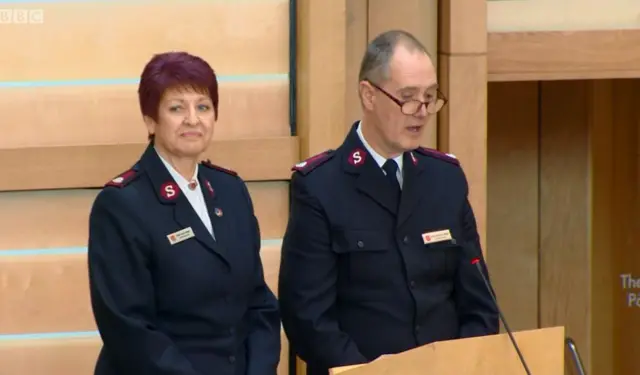 Image source, bbc
Image source, bbcMajors Lynn and Raelton Gibbs from Salvation Army
Delivering this week's time for reflection are Majors Lynn and Raelton Gibbs from Salvation Army.
The Economy Committee takes evidence on the impact of bank closures
Topical questions covers CalMac disruption and doctors' early retirement
Brexit Minister Mike Russell provides an update on EU (Withdrawal) Bill negotiations
The national plan for Gaelic is debated
SNP MSP lead a debate on the Jayden Orr campaign
Louise Wilson and Craig Hutchison
 Image source, bbc
Image source, bbcMajors Lynn and Raelton Gibbs from Salvation Army
Delivering this week's time for reflection are Majors Lynn and Raelton Gibbs from Salvation Army.
 Image source, CalMac/Getty Images
Image source, CalMac/Getty ImagesThis afternoon MSPs ask topical questions on disruption to CalMac services and the early retirement of doctors.
Brexit Minister Michael Russell is then expected the provide an update on negotiations on the EU (Withdrawal) Bill.
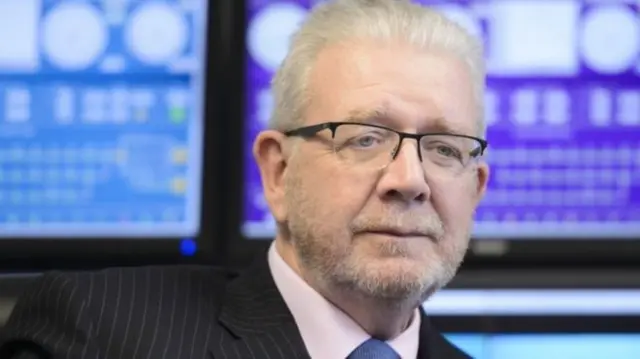 Image source, PA
Image source, PAAfter that, the Scottish government will lead a debate on its National Plan for Gaelic.
Ending the day, SNP MSP Stuart McMillan leads a debate on Show Some Heart campaign, which was launched to raise awareness of defibrillator machines after the tragic death of 10 year old Jayden Orr.
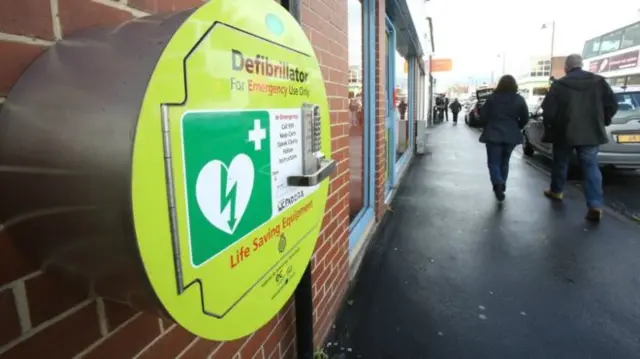 Image source, PA
Image source, PAAllow X content?
This article contains content provided by X. We ask for your permission before anything is loaded, as they may be using cookies and other technologies. You may want to read X’s cookie policy, external and privacy policy, external before accepting. To view this content choose ‘accept and continue’.
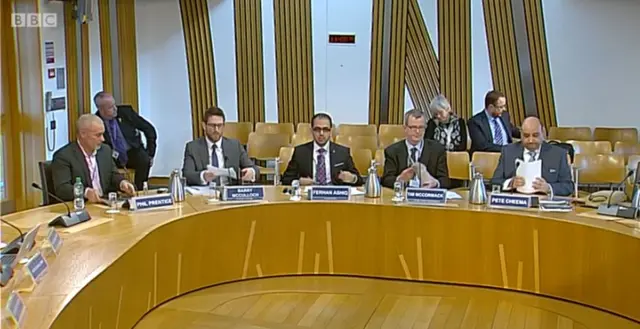
Committee convener Gordon Lindhurst thanks the witnesses for their evidence and suspends the session.
Labour MSP Jackie Baillie asks about sanctions attached to breaches of the access to banking protocol.
Barry McCulloch says there a big questions around the viability and effectiveness of the protocol going forward.
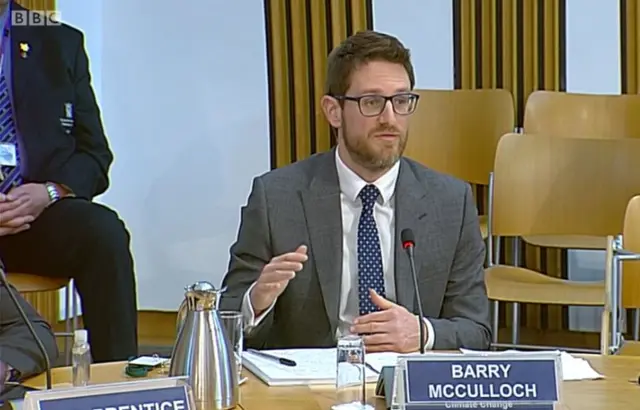
Pete Cheema notes Lloyds banking made massive profit last year and asks why they are closing Bank of Scotland branches.
Mr McCulloch calls for the UK government to conduct an economic impact assessment of the closures.
He says there must be clarity on what the minimum banking provision required is.
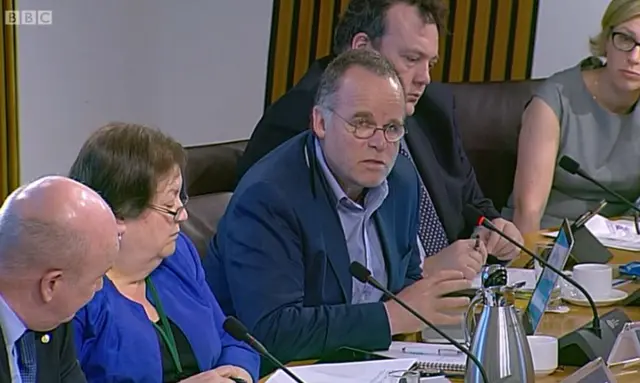
Green MSP Andy Wightman
Green MSP Andy Wightman suggests the state must be involved in the solution because this is an issue of "market failure".
Pete Cheema from Scottish Grocers Foundations says "we are looking at a solution when we already have a solution".
This is the last-branch-in-town provision.
Decisions are being taken in London but do they really understand Scotland's landscape, Mr Cheema asks.
Barry McCulloch speaks about the impact of closures on productivity.
One FSB Scotland member has to travel between Inverness and Ullapool to deposit money, which is a three-hour round journey, he says.
This is time that the owner has to take out of his business, Mr McCulloch says.
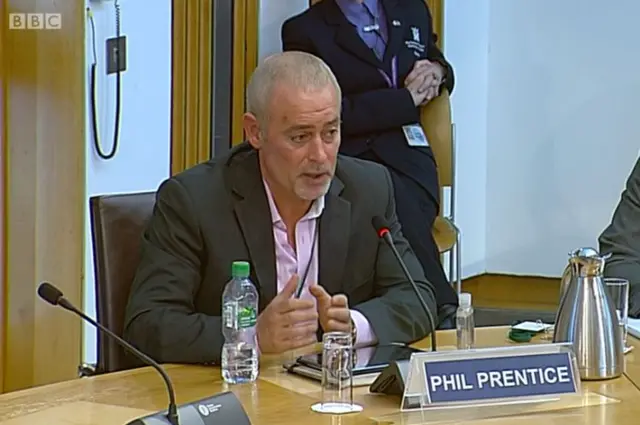
Phil Prentice of Scotland's Towns Partnership
Phil Prentice of Scotland's Towns Partnership suggests getting all banks around the table to discuss a last-branch-in-town solution.
Banks must consider working together and bring about a step-change, he argues.
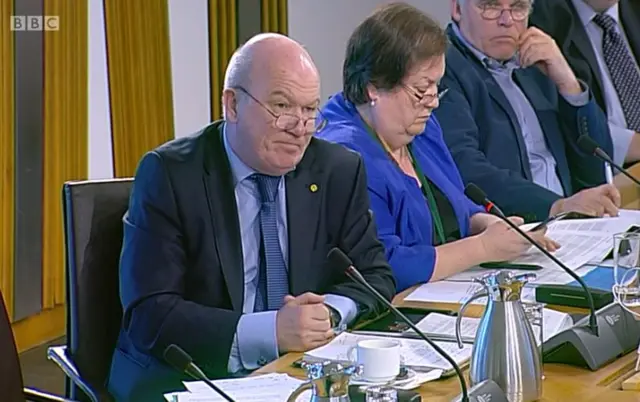
SNP MSP Gordon Macdonald
SNP MSP Gordon Macdonald asks about analysis on the impact on the economy of all the costs associated with closures.
Mr McCulloch says Highlands and Islands Enterprise is looking into this for their region but this is the only one he is aware off.
We have not yet taken a step back as a country to look at the impact, he says.
Mr Mcdonald asks about the impact on individual businesses.
Ferhan Ashiq talks about hidden costs related to the cash machine in his shop, as well as delays in money getting to his bank account.
Tim McCormack says his bank charges have halved since he started depositing money in the Post Office.
 Image source, RBS
Image source, RBSThe Royal Bank of Scotland has been accused of spreading its mobile bank service in the Highlands "too thinly" to cover branch closures.
A new timetable for the service to start from 21 May includes more locations, but shorter weekly visits for some locations.
Stops in Kingussie will be cut from 45 minutes to 20 and in Boat of Garten from 30 minutes to 15.
The bank said it would review the mobile bank timetables regularly.
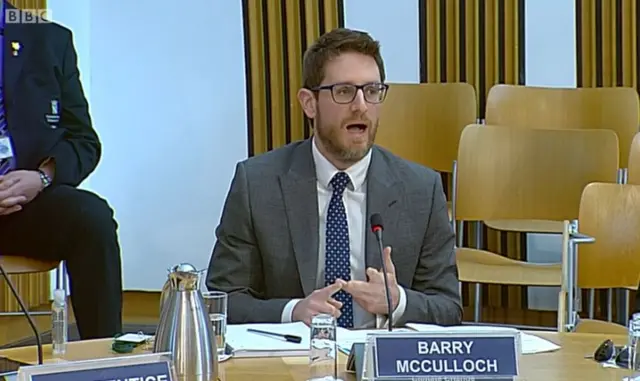
FSB Scotland's Barry McCulloch
FSB Scotland's Barry McCulloch says online banking are often pointed to as alternatives, but this is not helpful for areas with poor internet connection.
Bank closures often effect the very same rural areas which have limited internet access, he says.
Mr McCulloch also raises concerns about mobile bank units, stating these often do not visit regularly enough or are often not open for long.
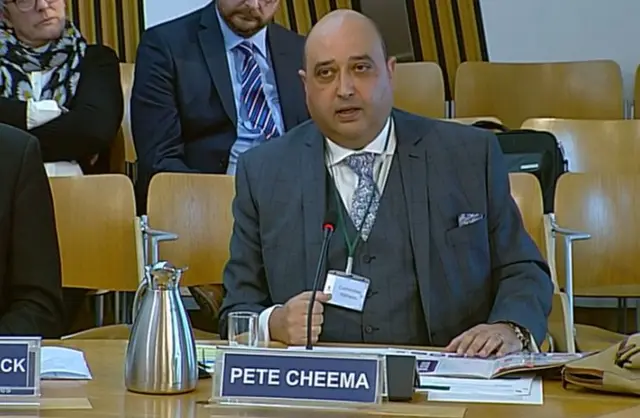
Pete Cheema of the Scottish Grocers Federation
SNP MSP John Mason asks about consultations on banks' decisions to close branches.
Pete Cheema of the Scottish Grocers Federation says he is not aware of many consultations, with closures instead just being announced.
There has been no consultation and no back-up plan, he suggests.
The access to banking protocol is not being followed, Mr Cheema says.
Mr McCulloch adds the protocol has "mixed uptake" and says he is not aware of any situation where a bank has changed its mind after consultation.
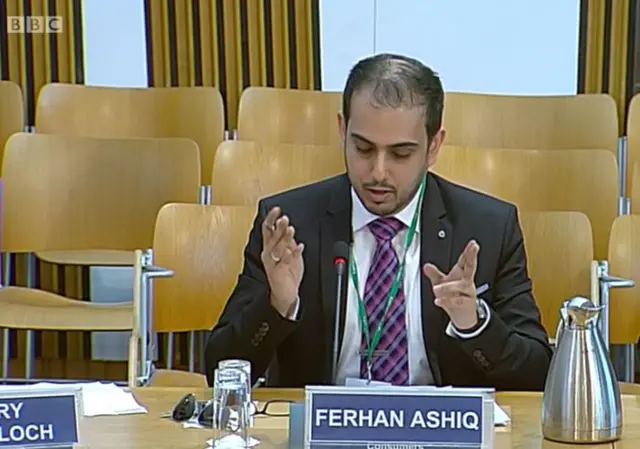
Ferhan Ashiq
Prestonpans community councillor Ferhan Ashiq says he does not accept card payments for PayPoint transactions because the charges are too high.
Turning to ATM charges, he argues bigger retailers can afford these costs but small retails cannot.
Having an ATM in his store has increased sales by 28%, Mr Ashiq explains, but he expresses concern about how ATM charges will impact this.
Tim McCormack says the majority of his sales are less than £5 and therefore tend to be made by cash, not card.
Allow X content?
This article contains content provided by X. We ask for your permission before anything is loaded, as they may be using cookies and other technologies. You may want to read X’s cookie policy, external and privacy policy, external before accepting. To view this content choose ‘accept and continue’.
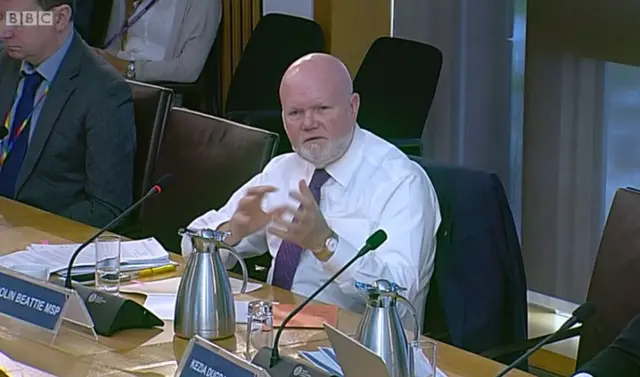
SNP MSP Colin Beattie
SNP MSP Colin Beattie says the banks suggest "cash is dead" but witnesses today are saying it is still regularly used.
Barry McCulloch says 75% of FSB Scotland members regularly visit branches, which directly contrasts with what banks are saying.
We need to establish the facts he says, welcoming the committee's inquiry into this.
Pete Cheema of the Scottish Grocers Federation says "cash is still king in retail", pointing to 2017 figures indicating 76% of turnover was from cash transactions.
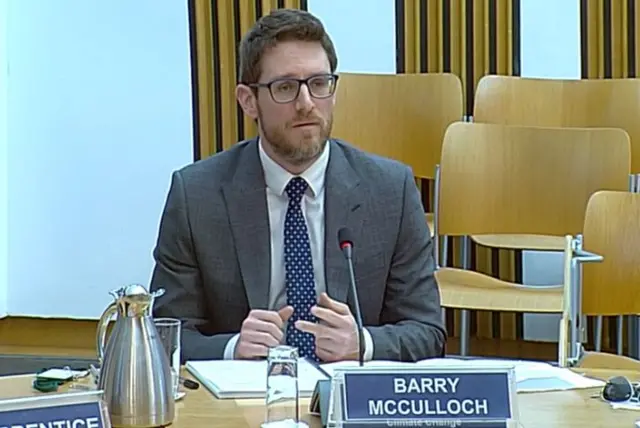
Barry McCulloch of FSB Scotland
Local government has a duty to consider how to invest to attract wider private markets to come into towns, Phil Prentice of Scotland's Towns Partnership says.
Barry McCulloch of FSB Scotland says a range of public and private bodies are dis-investing from town centres, making it difficult to "breathe new life" into them.
Allow X content?
This article contains content provided by X. We ask for your permission before anything is loaded, as they may be using cookies and other technologies. You may want to read X’s cookie policy, external and privacy policy, external before accepting. To view this content choose ‘accept and continue’.
Allow X content?
This article contains content provided by X. We ask for your permission before anything is loaded, as they may be using cookies and other technologies. You may want to read X’s cookie policy, external and privacy policy, external before accepting. To view this content choose ‘accept and continue’.
Tory MSP Jamie Halcro Johnston asks about the location of branches.
Ferhan Ashiq says local businesses were not consulted when his nearest branch changed to Tranent, until local MSP Iain Gray "kicked up a fuss".
Even then, Mr Ashiq says discussion was "negligible".
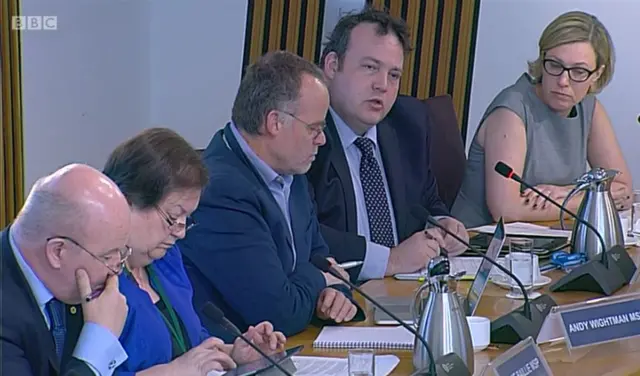
Tory MSP Jamie Halcro Johnston
SNP MSP Gillian Martin asks about the use of buildings after banks have closed.
Phil Prentice of Scotland's Towns Partnership agrees more consideration needs to be given to this.
He adds the Scottish government has the right approach in considering the uses of towns as a whole.
Barry McCulloch from FSB Scotland argues that bank branch closures will thwart some towns' attempts to regenerate.
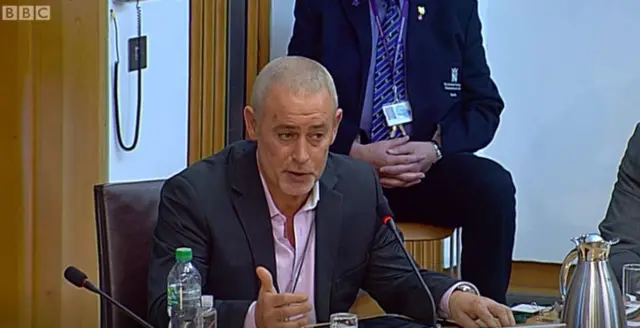 Image source, bbc
Image source, bbcPhil Prentice of Scotland's Towns Partnership
Phil Prentice of Scotland's Towns Partnership says by and large he is not against bank branch closures.
However, Mr Prentice says there must be some form of last-branch-in-town provision and something must be left in place.
He says we have to accept we are moving to becoming a cashless society.
The closure of a banks can leave a "sense of decline and despair" and leaves a "toxic legacy", he says.
Branch closures in some places has created some space in town for more investment, Mr Prentice suggests.
 Image source, bbc
Image source, bbcIn January 2017 we reported that the Clydesdale and Yorkshire banking group (CYBG) was closing 79 branches with the loss of 400 jobs.
The Unite union said the closures represented a third of the bank's branch network.
The move was described as the largest-ever closure plan by the bank.
Unite national officer Rob MacGregor said the move would be "concerning" for local communities which would be left with less choice in banking services.
Mr MacGregor said: "Staff across the Clydesdale and Yorkshire Bank will be devastated to learn that 79 branches will close and consequently over 400 colleagues will lose their jobs.
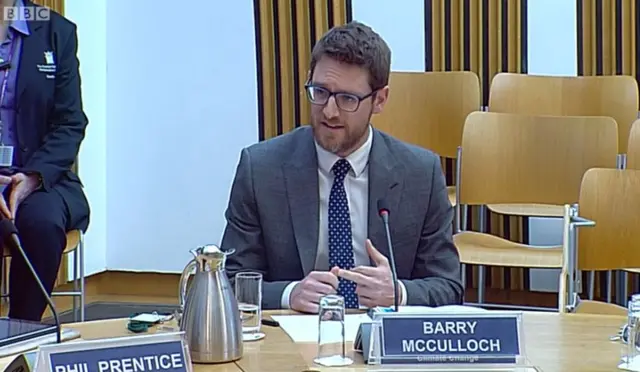
FSB Scotland's Barry McCulloch
FSB Scotland's Barry McCulloch says there are a number of towns with no banks and this is growing.
Cash flow is a problem as consumers still overwhelmingly use cash to pay for products, he explains.
Online banking, mobile banking units and post office access are "poor substitutes", Mr McCulloch says.